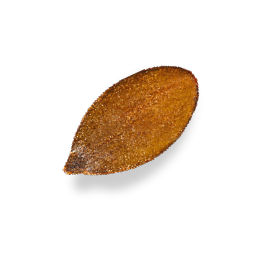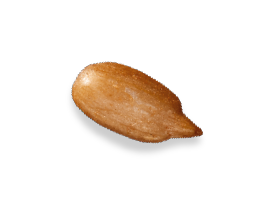The cold weather can really take its toll on our skin, leaving it flaky and dull. Instead of spending a fortune on skincare, treat it from within – see our nutritionist’s advice on how to help your skin glow from the inside.
We can’t stop or reverse ageing but we can help our skin to cope with everyday stressors, recover more quickly and retain its elasticity and firmness for longer – resulting in smoother, firmer, more hydrated looking skin. There are many nutrients involved in skin health such as Vitamin E and omega fatty acids, which are found in foods rich in healthy fats such as seeds. Skin helping nutrients can be found in common, easy to find foods – the key is to eat a varied and balanced diet, choosing a wide range of foods.
Deficiencies
Missing out on enough of certain nutrients can cause dull, flaky skin, breakouts or poor healing. Faddy diets and detoxes which exclude whole food groups could be leaving you lacking in essential nutrients and suffering from sad skin. If you have to exclude foods due to allergies, speak to a Dietitian to make sure that you are getting everything you need from alternative sources. Including healthy snacks in your diet such as fruits, nuts and seeds can give you that energy boost you need while providing nutrients to help keep your skin in tip-top condition.
Foods that may harm
Alcohol – too much may cause dehydration (and other internal damage). Dehydrated skin is less elastic lines & can make wrinkles are more visible.
Why not try a delicious mocktail that won’t make you feel left out. Enjoy sipping on crushed fresh raspberries and lemon juice shaken with 100% pure apple juice not from concentrated, elderflower cordial then topped with soda.
Hydration
Drink plenty of fluids to stay hydrated from within. Keeping well hydrated improves skin elasticity too!
Vitamin A
Needed for healthy skin maintenance and repair. Some evidence shows it can help to reduce environmental damage from sun, pollution and other stressors[1].
Good sources
Meat & dairy products, carrots, sweet potato, apricots, leafy greens.
Top tips
The healthy fats in our seeds can help with the absorption of Vitamin A from other foods.
Vitamin C
An antioxidant – helps to protect and repair the skin from damage caused by the sun’s rays and pollution Also needed for the production of collagen, which keeps the skin firm and elastic[2] and could aid with hydration[3].
Good sources
Fresh fruits and vegetables such as citrus fruits, blackcurrant, rose hip, guava, chili peppers, parsley.
Top tips
Our “Super Berry” mix is a source of Vitamin C and contains blueberries, cranberries, goji berries and mango; all great sources of vitamin C. (And delicious lightly toasted seeds of course!)
Vitamin E
Another powerful antioxidant that helps with the production of collagen and could be photoprotectant[4] – a deficiency could lead to premature skin aging[5] and dryness[6].
Good sources
Vegetable oils like wheat germ oil, sunflower oil, safflower oil and seeds, corn, soy and some oily fish e.g. tinned sardines in oil.
Top tips
A 50g portion of sunflower seeds provides 157% of your daily RI for vitamin E, as well as skin saviour minerals zinc and selenium. Our “Choccy Apricot” 50g bags contain 38% of your daily RI and 50g of our “Savoury Crunch” contain a huge 84% of your RI.
Omega 3 fatty acid
Anti-inflammatory, some evidence shows it can protects the skin from UV light[7], it’s essential for cell structure and could help with hydration[8] – deficiency affects the skin’s natural barrier and can lead to water loss and dryness[9].
Good sources
Oily fish (e.g. salmon, mackerel), walnuts, flaxseeds (linseed), chia seeds, hemp seeds, nuts and vegetable oils.
Top tips
Hemp seeds are one of the richest sources of omega 3 and are found in our Omega Sprinkles.
Zinc
Important for skin healing and supplementation could improve elasticity, hydration and reduce wrinkles[10]. There is growing research linking zinc levels to acne and sebum[11][12].
Good sources
All our Munchy Seeds mixes, Fish/seafood, eggs and wholegrains.
Top tips
Seeds are a fantastic source of zinc – 50g of pumpkin or sesame seeds contain over 30% of your daily RI.
Eating 50g of our “Omega Sprinkles” provides 23% of your daily RI and there’s 17% in 50g of our “Honey Seeds”.
Refrences
[1] Isolauri E, Arvola T, Sutas Y, et al. Probiotics in the management of atopic eczema. Clin Exp Allergy. 2000;30:1604–10
[2]Pullar et al. The Roles of Vitamin C in Skin Health. Nutrients. 2017 Aug 12;9(8).
[3] Costa et al. Assessment of clinical effects and safety of an oral supplement based on marine protein, vitamin C, grape seed extract, zinc, and tomato extract in the improvement of visible signs of skin aging in men. Clin Cosmet Investig Dermatol. 2015 Jun 29;8:319-28.
[4] Placzek M, Gaube S, Kerkmann U, Gilbertz KP, Herzinger T, Haen E, et al. Ultraviolet B-induced DNA damage in human epidermis is modified by the antioxidants ascorbic acid and D-alpha-tocopherol. J Invest Dermatol. 2005;124:304–7.
[5] Hamułka J, Wawrzyniak A. Karotenoidy w suplementach diety [Polish] Probl Hig Epidemiol. 2011;92:67–72.
[6] Passi S, Morrone A, De Luca C, Picardo M, Ippolito F. Blood levels of vitamin E, polyunsaturated fatty acids of phospholipids, lipoperoxides and glutathione peroxidase in patients affected with seborrheic dermatitis. J Dermatol Sci. 1991;2:171–8.
[7] Stevens LJ, Zentall SS, Deck JL, Abate ML, Watkins BA, Lipp SR, Burgess JR. Essential fatty acid metabolism in boys with attention-deficit hyperactivity disorder. The American journal of clinical nutrition. 1995;62:761–768.
[8] Hruza LL, Pentland AP. Mechanisms of UV-induced inflammation. J Invest Dermatol. 1993;100:35S-41S.
[9] Cosgrove MC, Franco OH, Granger SP, Murray PG, Mayes AE. Dietary nutrient intakes and skin-aging appearance among middle-aged American women. Am J Clin Nutr. 2007;86:1225-1231.
[10] Gollner et al. Ingestion of an Oral Hyaluronan Solution Improves Skin Hydration, Wrinkle Reduction, Elasticity, and Skin Roughness: Results of a Clinical Study. J Evid Based Complementary Altern Med. 2017 Oct;22(4):816-823.
[11] Kim et al. A comparative study of biological and metabolic biomarkers between healthy individuals and patients with acne vulgaris: A cross-sectional study protocol. Medicine (Baltimore). 2017 Nov;96(45):e8554.
[12] Chan et al. A randomized, double-blind, placebo-controlled trial to determine the efficacy and safety of lactoferrin with vitamin E and zinc as an oral therapy for mild to moderate acne vulgaris. Int J Dermatol. 2017 Jun;56(6):686-690.

